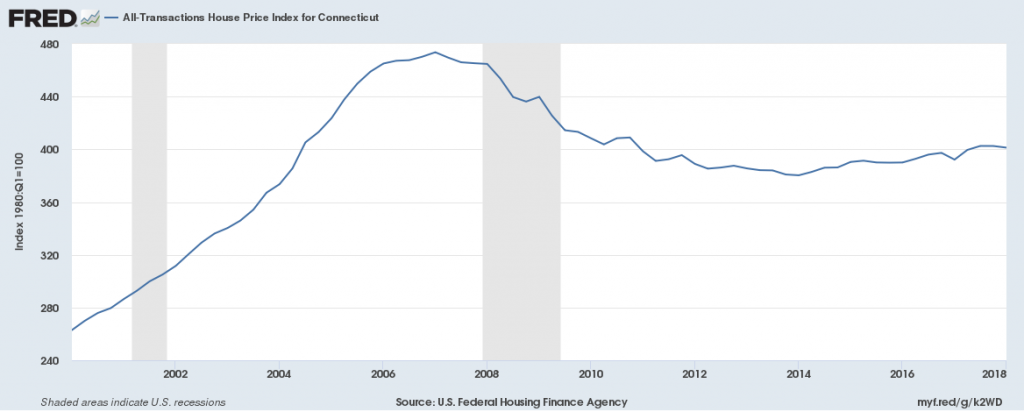Gross Domestic Product (GDP)
Real GDP (a measure of economic growth) has declined since 2007, from a high of $247 billion to approximately $226 billion in 2018.
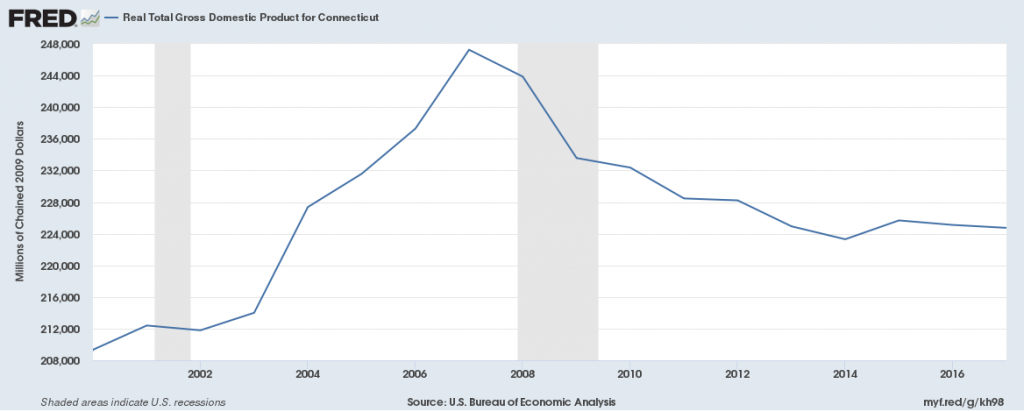
Jobs
From 2017 to 2018, the Connecticut private sector added 20,000 jobs.
Connecticut private-sector employers added 100,000 jobs from 2010 to 2017. Average hourly wages have been increasing since Jan. 2014, rising from $28/hr to $31/hr by 2018.
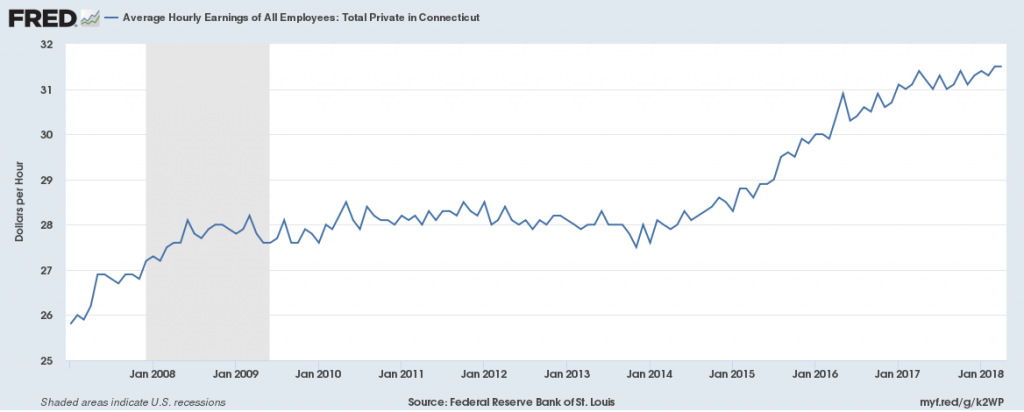
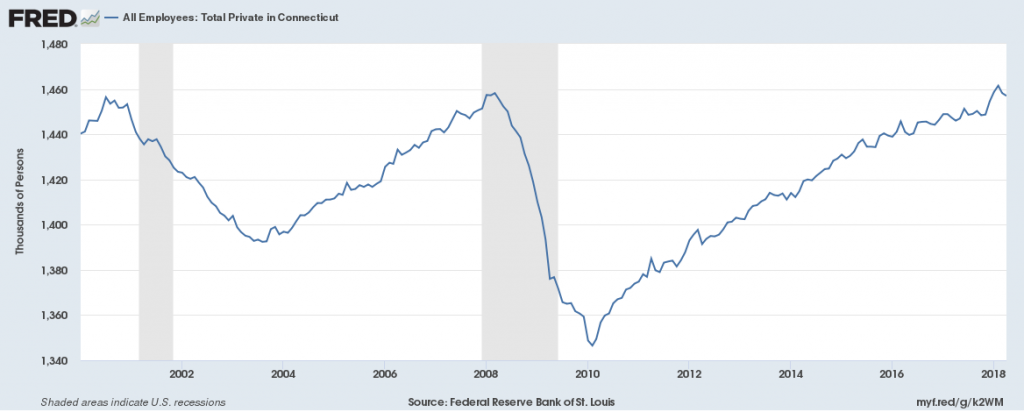
Manufacturing employment, after declining from 2000-2010, has remained steady since 2010 at around 165,000 jobs. Wages in this sector have been increasing since 2000, averaging around $25/hr in 2018.
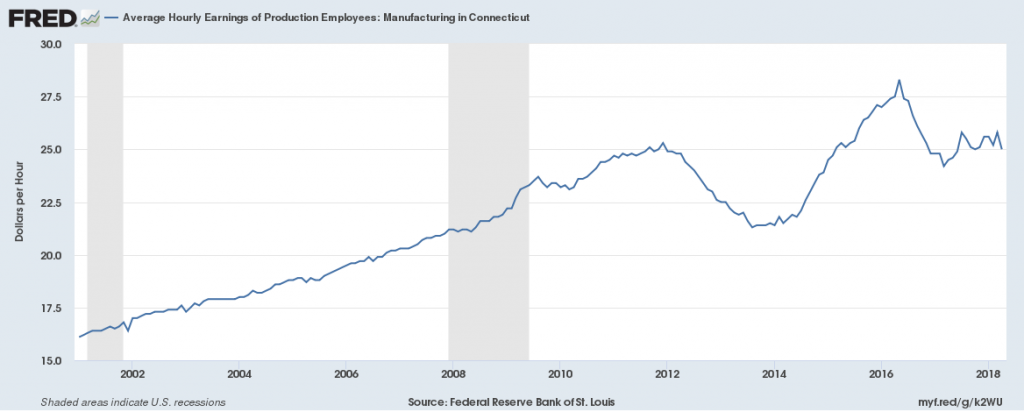
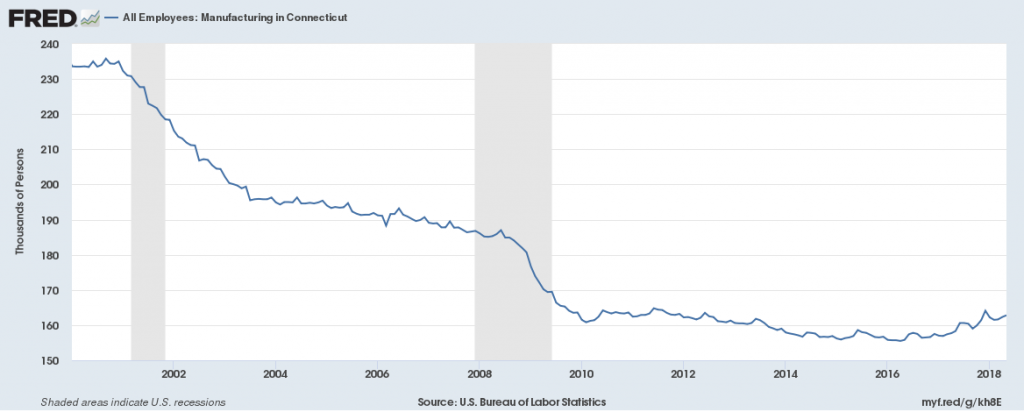
Transportation and Warehousing employment has increased steadily since 2010, exceeding pre-recession highs. There are 47,500 jobs in this sector, up from the low of 37,600. The average hourly earnings of Trade, Transportation and Utilities employees increased significantly since 2009. The average worker in this sector makes $26/hr, up from $21/hr the same time in 2010.
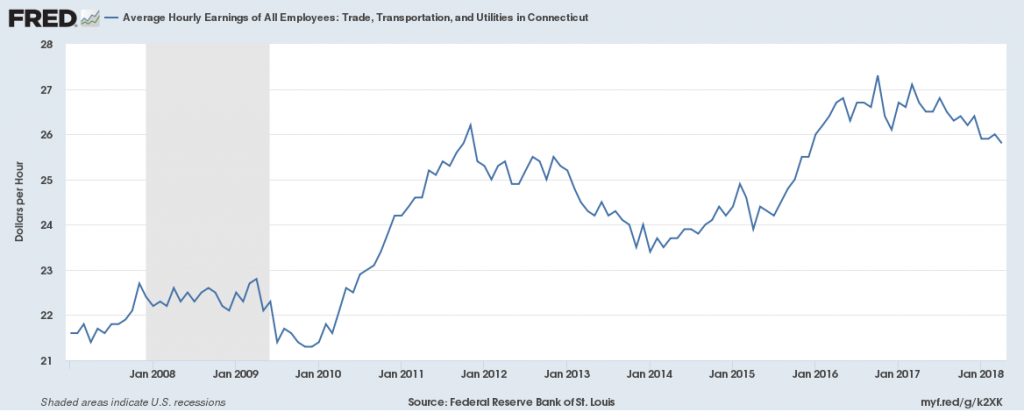
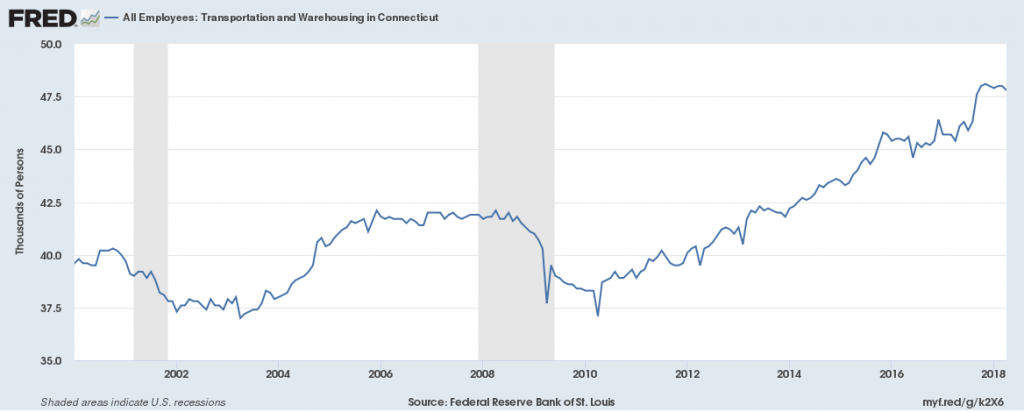
Unemployment
The unemployment rate in Connecticut was 4.5% in May 2018. The rate is down .5 percentage points from one year earlier.
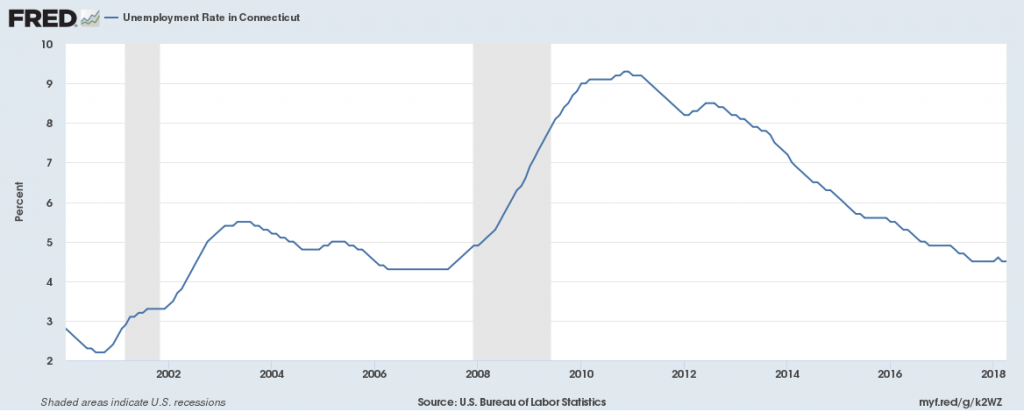
Housing
The House Price Index, a measure of the cost of housing, has continued to decline since its peak in 2006. It now sits at 400, down from its high of 480, reflecting cheaper housing in the state.
